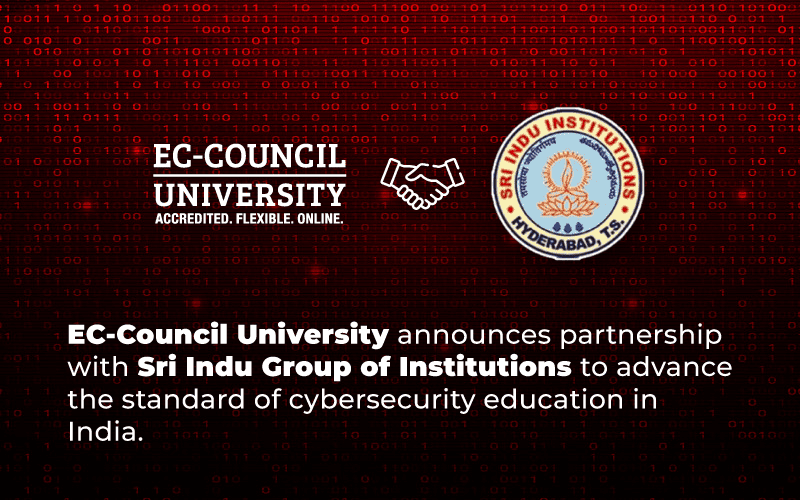Cyberattacks have become a harsh and unwelcome reality of contemporary times. As technology continues to be omnipresent and inevitable, cybercriminals are combining creativity and logic to break into IT systems. We explored the Top Ten Cyber Attacks of 2020-21 in one of our previous blogs. In this blog, we are going to look ahead and talk about the future of Cyber Security.
Knowledgeable, skilled, and capable Cyber Security professionals are very much in demand. And this demand for skilled Cyber Security professionals is only going to rise further, with businesses moving online and working remotely becoming the norm.
What Are the Major Cyber Threats?
Cyberattacks take many forms—malware, phishing, man-in-the-middle attacks, denial-of-service attacks, SQL injections, zero-day-exploits, etc. Malware is the most common variety of cyberattacks, and ransomware is its most popular form. Cybercriminals use ransomware to disable a device or hold important data hostage until the owner pays money as ransom.
Another common threat is phishing, where criminals impersonate legitimate organizations via email, text message, advertisement, or other means to steal sensitive information. This may include a link that will take users to the company’s website to fill in their information – but the website is a clever fake. The information users provide goes straight to the crooks behind the scam. According to Retarus, phishing attacks account for over 80% of security incidents.
Who Are the Threat Actors?
Gone are the days when cybercriminals were just individuals who hacked into powerful computer systems from a laptop in their bedrooms. Cybercrime is now highly organized in the way that hackers work in groups and operate across geographical boundaries. We have seen groups developing and coordinating ransomware attacks on a large scale. Have you heard about the REvil group?
We have also seen state-sponsored cyberattacks in the recent past, for example, the Chinese government attack on Microsoft Exchange Server users and the Russian attack via the SolarWinds software platform. The purpose behind these attacks was disruption, theft, or espionage. So, can we say that when nations fall out with each other in the future, the battleground will be cyber? Or, Can Cyberattacks Lead to a Real War?
While hackers leverage automation and machine learning to carry out attacks against corporations and governments, Cyber Security professionals need to stay ahead of the game by using advanced algorithms and futuristic technologies to mitigate such sophisticated attacks.
What Are the Future Challenges?
Beyond 2021, these will be some of the future challenges for Cyber Security:
The Dependence on IoT
In the future, the dependence on IoT (Internet of Things) will only increase as more people will use it in their daily lives. According to IoT Analytics estimates, there will be 30.9 billion connected devices by 2025.
IoT devices contain sensors and mini-computer processors that act on the data collected by the sensors via machine learning. Machine learning is when computers learn similarly as humans — by collecting data from their surroundings — and it makes IoT devices smart, like smart cars, smart homes, etc. IoT devices connect to networks that have access to highly sensitive information; however, these devices have weak security controls. As a result, businesses struggle to provide adequate security measures that will keep IoT devices secure.
The Human Element
We can hope that in the future, internet communications will be more secure. Network threats are more likely to subside with the advent of quantum networks. This is because quantum networks rely on the quantum properties of protons, not on the computer codes that can be cracked.
But the problem is that humans, at least a vast majority, are prone to errors. Cybercriminals will continue to use social engineering tricks like phishing that people will fall prey to.
Heavy Reliance on Digital Transactions
It is expected that the future will move towards digital financial transactions more rapidly, requiring the services of internet banking platforms, third-party payment platforms, etc. As of now, these platforms are not centralized in many countries, and laws and regulations will take time to be in place. This may increase the risk of fraud.
Also, since these activities are internet-based, where there is a lack of global laws and regulations, law enforcement authorities may find it difficult to prosecute cybercriminals belonging to other countries even if they are caught.
A Growing Void of Skilled Professionals
If a company or organization wants to implement a strong defense against cyberattacks, it will need to employ skilled Cyber Security professionals. But the demand for Cyber Security experts is more than the supply. And the challenge to fill this void will be greater in the future as there will be more focus on prevention and preparedness for cyberattacks in most companies and organizations across the globe.
As a consequence, we can hope that the careers of Cyber Security aspirants will be extremely rewarding. But first, they need to learn the skills. They can do so at EC-Council University — one of the premier institutes for Cyber Security education.
Summary
The landscape of Cyber Security is ever-expanding. As cyberattacks get sophisticated, so does the technology countering such attacks. No matter how experienced you are as a Cyber Security professional, there is always something new that is coming your way — the reason why this discipline is so challenging and dynamic. You have to keep on learning and keep on acquiring new skills.
So, whether you are a newbie starting your Cyber Security journey or an experienced Cyber Security professional, an investment in Cyber Security education will always pay dividends, provided you seek out the right educational institution. For, as the digitization of processes and procedures continues, Cyber Security is going to be even more important in the future.
Found this article interesting? Follow EC-Council University on Facebook, Twitter, Instagram and LinkedIn to read more exclusive content.








